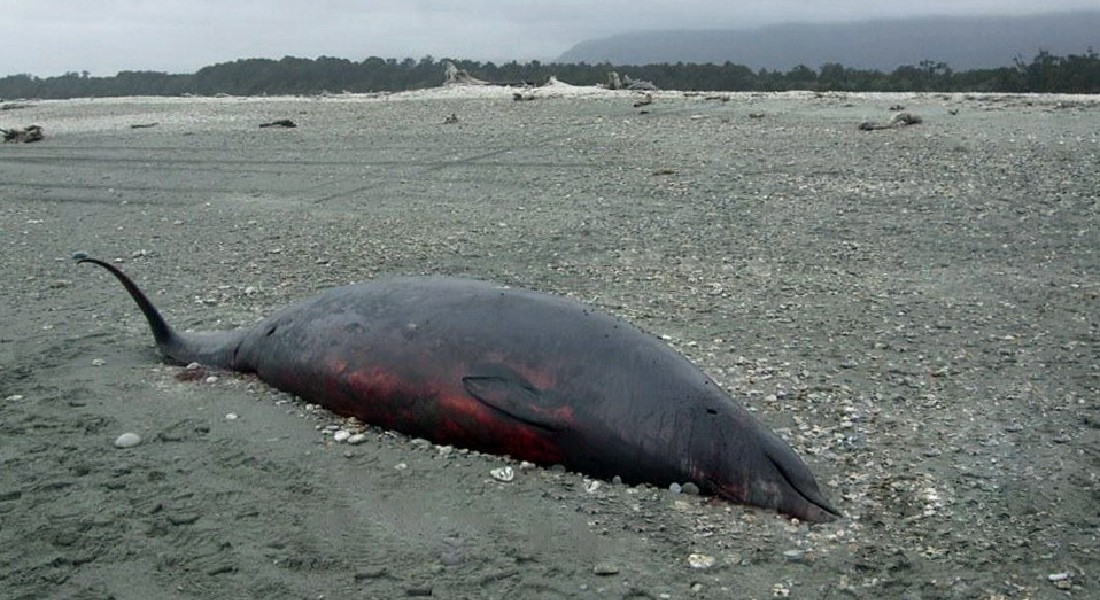Danish researcher involved in discovery of new whale species named after Māori woman
Traditional Māori knowledge helped Western science discover a new beaked whale species washed ashore in Aotearoa, New Zealand. Danish scientist Morten Tange Olsen, who helped carry out the research, hopes the discovery will highlight the lack of scientific knowledge with regards to the basic biology of most beaked whale species.

Almost a decade ago, a whale washed ashore on the west coast of Aotearoa New Zealand. The animal was five meters long, a female and pregnant. The local iwi (tribe) of Ngāti Māhaki named her Nihongore, and her bones were sent to Te Papa Tongarewa Museum in Wellington for preservation.
Initially, scientists thought that this was a specimen of the known whale species True’s beaked whale. However, Ramari Stewart, a local Mātauranga Māori whale expert, who was raised by her elders in the traditional Māori knowledge of the moana (the sea), knew something was different the moment she saw ‘Nihongore’.
We know very little about even the basic biology of most beaked whale species, and it is likely that additional species will be described in the future.
An international research team with Associate Professor Morten Tange Olsen from the University of Copenhagen, Dr. Emma Carroll from University of Auckland, and several others, collaborated on the project that now reveals that the female animal washed ashore did in fact belong to an undiscovered whale species, which they named Ramari’s beaked whale in honour of Ramari Stewart.
“Ramari brought extensive knowledge to the project and it’s brilliant that she accepted the honor of having this species named after her, in recognition of Ramari’s Mātauranga and Western knowledge on whales and dolphins. As ‘Ramari’ also means a rare event in Te Reo (Māori language) it is also a fitting tribute to the elusive nature of most beaked whales,” says Dr. Emma Carroll from Auckland University, New Zealand, who led the study.
"Western science is starting to recognise the importance of traditional knowledge"
The genetics and skull shape of the True’s beaked whales, traditionally found in the Northern Hemisphere, was very different to one washed ashore on the west coast of New Zealand, as well as similar specimens from South Africa, which were reanalyzed by the team. The researchers were able to identify that the newly discovered Ramari’s beaked whale species has been separated from the True’s baked whale-species for around half a million years. Probably because they do not like the warm water near the equator.
The discovery brings the total number of beaked whale species to 24. The group consists of mainly elusive species and includes the deepest diving mammals, which can dive hundreds or thousands of meters to find their squid prey.
“They are extremely fascinating creatures,” says Morten Tange Olsen at Section for Evolutionary Genomics, GLOBE Institute, University of Copenhagen.
“Think of elephant size animals that need to surface to breathe air, but spend a large part of their time in the deep waters of the ocean. We know very little about even the basic biology of most beaked whale species, and it is likely that additional species will be described in the future. In a time of biodiversity and climate crisis, as well as an increasing reliance on marine resources, this really highlights the beauty and need for interdisciplinary and international collaboration to understand the secrets of our oceans,” he says.
The research team gave Ramari’s beaked whale the scientific name ‘Mesoplodon eueu’. Eu’eu means ‘big fish’ in the Khwedam language of Khoisan people inhabiting a region of South Africa, where other specimens of the newly discovered Ramari’s beaked whale has been found.
“It’s wonderful that Western science is starting to recognise that Mātauranga Māori is as equally great as Western science and the two can work together. Rather than just bridging a relationship and taking knowledge from Indigenous practitioners, it is better that we both sit at the table,” says Ramari Stewart.
In collaboration with an international team of over 30 scientists, the research is just published in the international journal Proceedings of the Royal Society B.
Read the full paper ‘Speciation in the deep: genomics and morphology reveal a new species of beaked whale Mesoplodon eueu’ here.
Contact
Associate Professor Morten Tange Olsen
morten.olsen@sund.ku.dk
+45 42 66 15 25
